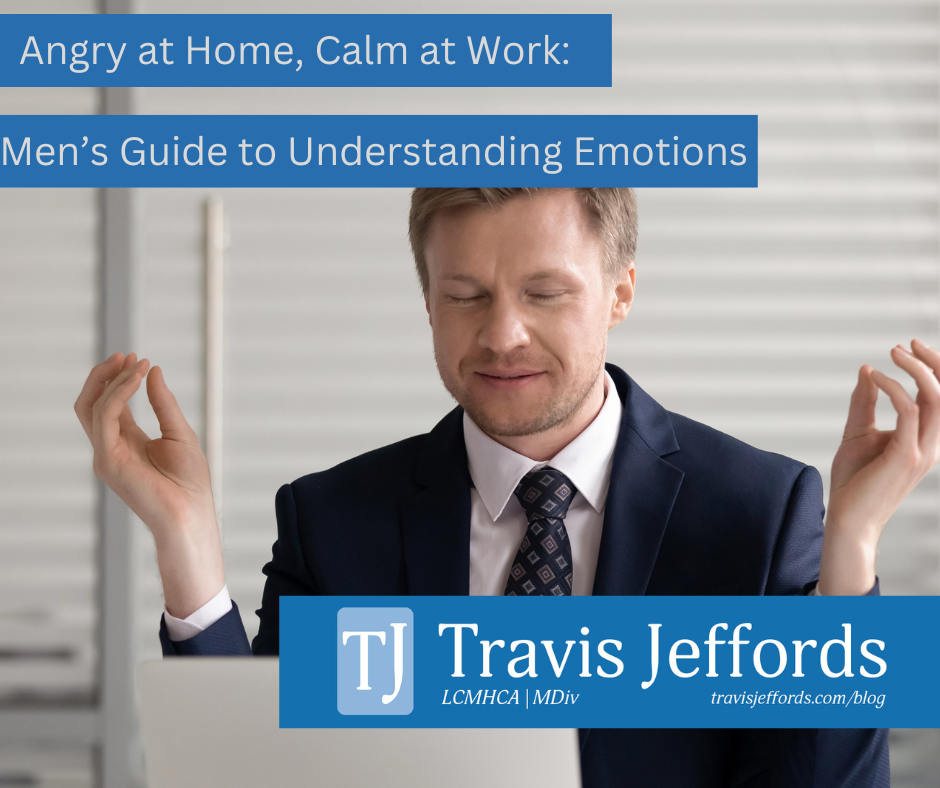Masculinity and Emotional Health: Dart Boards and Car Windows
I am convinced that on some level we all want to be emotionally healthy…but many of us are not even sure what emotional health looks like.
Imagine playing darts in a bar but no one telling you what a dart board looks like. You’d start throwing darts all over the place - at the ceiling, at the taps, maybe at the toilet…if no one helps show you what a dart board is, it’s really hard to know what hitting a bullseye looks like. Similarly, if we don’t have accurate pictures of emotional health, we’re left playing out the unhealthy visions of masculinity we have inherited from our family of origin and culture at large.
As a male counselor in Greensboro and Winston-Salem, I have encountered two common themes in working with men.:
Either:
1. Their emotional boundaries are too open.
Or
2. Their emotional boundaries are too closed.
In this blog post, I’ll give you real life examples of what it looks like for men to be in need of emotional growth, as well as sharing what emotional health looks like.
When the Car Window is Stuck Open - A Lack of Emotional Boundaries
A few years ago I had an old Honda Civic that was quickly breaking down. I knew I needed to look into getting a different car, but, I just wasn’t at a place where I could afford it.
At one point, I rolled the driver’s side window down at a drive through, and it never rolled back up!
I would drive down the highway getting blasted with freezing air from the Indiana winter.
Not fun.
Unfortunately, there are lots of men who find themselves in this exact same situation - not with their car windows, but with the windows to their own lives and emotions. These men are generally called ‘people pleasers’. They struggle to say ‘no’ to others, and to understand where others desires end and where their own needs begin. Here’s what happens when you lack the ability to “close the window to your car” in your own emotional health:
You take on jobs and tasks at work that you don’t want to do, but are uncomfortable saying ‘no’ to.
You agree to anything and everything your partner asks of you…which sounds ‘kind’ and ‘nice’, but you start to harbor intense inner resentment towards your partner because of your own inability to say ‘no’ in appropriate ways.
You feel responsible for managing other people’s emotions - responsible for decreasing their anger, their anxiety, or their sadness.
You try to ‘fix’ other people's problems even when they don’t want you to because you feel uncomfortable with their emotions.
You say ‘yes’ to every request of you, even the things you do not want to do. Saying ‘yes’ to helping friends move when you’re exhausted and need rest. Saying ‘yes’ to activities at church or your political organization that you do not want to do but feel you have to. Saying ‘yes’ to extended family when you have no bandwidth to take those things on.
If you can see yourself in these examples, you might ask yourself, how can I begin to ‘close the window to my car?’ What is something I can say ‘no’ to? What is a space where I can allow someone to have their own emotions without needing to jump in and fix it, save them, decrease their emotions, or take their emotions on?
You don’t have to step right into standing up to your father after 20 years of emotional abuse, or quitting your job on the spot…just find a small but slightly uncomfortable way you can roll that car window up and create an appropriate boundary between someone else’s desires and your own needs.
When the Car Window is Stuck Closed - A Lack of Emotional Connection
After a few days of driving around with the window open in the Indiana winter, I saw a mechanic. They let me know it cost more to fix the window than I had, but, they could raise the window and lock it closed for like 50 bucks. The window didn’t go down anymore, but it wasn’t stuck wide open for rain and snow and cold air to come in.
But this proved to have drawbacks too. I would go through the drive in, and have to open my door to give my order and grab my food and they looked at me like I was a total weirdo. When it was nice outside in the Spring, I couldn’t roll the window down and enjoy the breeze and sun, or roll the window down to let hot air out in the Summer.
The same is true for our emotional lives. Some men have learned to live with their window stuck closed. Here’s what that can look like:
Your partner feels distant from you because you are unable to connect with their emotions, or share your own with them.
You are too emotionally closed to experience the fullness of positive emotions like joy and gratitude.
The only way you know how to experience connection with another person is through sex - which creates a hyperfixation on sex in you - and resentment in your partner.
Because you try to deny your emotions, they end up coming out in other ways - depression, explosions of rage, etc.
Signs of Emotionally Health Men
You know where this post is going, right?
Eventually the car window got fixed, and it could both open or close, depending on what the situation demanded. I could roll it down at the drive through or in the summer, but keep it closed when it was raining or cold outside.
Here’s what that looks like for men:
You are able to say ‘no’ or ‘yes’, calmly and confidently.
You are comfortable expressing your own truth to others even if you know it will not be received well, while at the same time remaining calm, curious, and open about another's perspective.
You don’t rush in to ‘fix’ others' problems unnecessarily, nor do you abandon them, but are able to provide appropriate space and support for the given situation.
You are aware of what you are feeling and needing at any given moment and are comfortable naming that clearly for others.
You find yourself increasingly able to make informed, educated guesses about what others’ feelings and needs are, but also recognize that these are just guesses.
You can communicate in straightforward and honest ways your own sexual feelings and desires.
Conclusion
We want to be emotionally healthy, but most men get confused on exactly what that looks like. Like most things in life - the answer isn’t found in denying one part of ourselves, but in the ability to integrate both the ability to create distance and connection with others when appropriate.
Being emotionally healthy entails finding balance.
Ultimately, emotional health for men involves finding the equilibrium between openness and closure, understanding and respecting personal boundaries (your and others), and fostering genuine connections with others. By recognizing the signs of emotional growth and seeking to develop these attributes, men can move toward a more balanced and fulfilling emotional life.
Wishing you the best on your mental health journey.
Hi, I’m Travis.
My clients describe me as calm, compassionate, and curious…
You have these qualities inside you at your core too. You just need a little help uncovering them.
If you’re dominated by anger, anxiety, shame, or self-criticism, I can help you re-connect with who you really are: confident, calm, courageous, compassionate, and connected to yourself and others.
Travis Jeffords - LCMHCA | MDiv. | Male Counselor
In-person counselor: Greensboro & Winston-Salem
Virtual counselor: North Carolina
Licensed Counselor
Please note: The information provided in this blog is for general informational purposes only and is not a substitute for professional counseling or therapy. The content presented here is based on my professional knowledge, personal experiences and research, but it should not be considered as a replacement for individualized mental health advice.
Every individual is unique, and the content provided may not be applicable to everyone's specific circumstances. It is important to consult with a licensed mental health professional regarding your specific concerns and to receive personalized guidance tailored to your needs.













